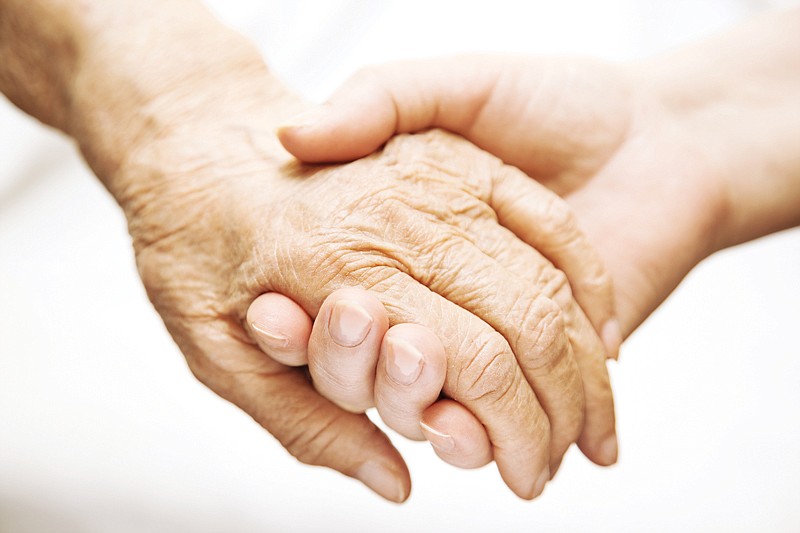- November 22, 2024
-
-
Loading

Loading

I had back surgery Dec. 4, 2017, for spinal stenosis and spondylolisthesis, which required fusing several vertebrae.
The recovery time — optimistically, I might add — was set at three months.
On Feb. 23, my husband was diagnosed with heart failure, caused by a leaking heart valve. In the course of checking out the leak, it was discovered that he could use a trio of arterial bypasses, and on March 7, he underwent open heart surgery.
In a matter of days, weeks and hardly even months, our roles totally reversed.
Jack remains in Sarasota Memorial’s Rehabilitation Pavilion, where he has been putting his best efforts toward regaining his mobility, strength, endurance. I can relate a few of the lessons I’ve learned in this short period of being on both sides of that vulnerable abyss of needing and giving care.
Here are some lessons I’ve learned.
Lesson 1: Listen to your body
I was resolved to whip through this surgery and recovery thing with the same “can do” attitude that I’ve employed during most of my life. Three months recovery? Forget it, I’ll be back up and working at max speed in six weeks, I told myself.
My wonderful surgeon Ash Patel told me otherwise.
“Do what you can, but don’t overdo,” he said repeatedly.
But, I didn’t listen to my body. I repeatedly overdid. Ergo, listen to your body. Rest when you need to. Don’t make your own rules. Follow what the experts say — that’s why they are the experts, after all. And, this goes for both care receiving and care giving.
Lesson 2: Ask for help
Most women especially seem to have the “power through it” mindset. When someone asks, “How can I help?” tell them. And this goes for both receiving and giving care.
A good friend, knowing I was in the middle of a huge project due the last week in March, gave me sage advice: “All those people who have asked how they can help,” said Chris. “Well, make a schedule of when they should plan to visit Jack for the next week when you don’t have time to be with Jack in rehab. They will understand. They will be happy to have a job.”
It worked. And that’s just one thing. If you need a meal, tell someone who likes to cook — there are truly such people. People are really happy to do so.
Lesson 3: Plan ahead
I insisted that I sleep in a guest bedroom that was across the house from our master bedroom against my husband’s judgment. I practiced getting in and out of bed and taking the few steps to the bathroom. However, in the middle of one night shortly after I returned home from the hospital, I became stuck in the bathroom in a compromising position. I did not have enough strength to stand up even with the help of my walker. At 3 a.m. I was screaming at the top of my lungs for Jack, trying to turn our dogs into Lassie and send them to fetch Jack, and then finally resolving just to sit there the rest of the night.
The next day, we got baby monitors and an extender for the commode, and a temporary grip bar.
I’m planning for Jack’s return home by changing the functions of several rooms in our house. Stairs will not be beneficial for Jack, so there will soon be no reason for him to climb to our second story. As one of the very caring therapists at the Rehab Pavilion told me, “Look at every room in your house with fresh eyes and visualize how Jack will be able to navigate. Where will he need help? How do you reduce hazards? Most importantly, how to you help him keep his strength in reserve so he can use it for something he’ll enjoy.”
Thank you, Lauren, for prioritizing things.
Lesson 4: Let yourself go
Yes, just lose it. Feel sorry for yourself. Think the unthinkable. Eat an entire bag of chips — chocolate or potato. Both have the same effect. Or better yet, use that time to take a long, soulful walk. Cry over a Humane Society ad or scream at that idiot from Quebec who thinks taking three lanes at once is OK.
The point is that healing is a process, whether you are doing the healing or the helping. It’s just not an event. You must practice that most difficult of all virtues — patience. As psychotherapist Karen Koenig reminded me in one of her blogs, “Remind yourself that its OK to feel vulnerable and that you need not be strong all the time. Focus on taking care of yourself (on both sides of the spectrum) and knowing that tomorrow will be a better day.”
Lesson 5: Be grateful
Gratitude is something we don’t exercise enough. We seem to be a society of whiners and complainers. Sure, there’s plenty to whine and complain about, but when you get down to the nitty-gritty, life is precious. Let me repeat that. Life is precious. Share your gratitude with those — from the clerk at 7-Eleven to the esteemed surgeons who make a difference in your life. Because that will make a difference in your life.
Kristine Nickel is a marketing communications consultant and former marketing and public relations executive. For more than 30 years, she has relieved her stress by writing features for publications across the country.